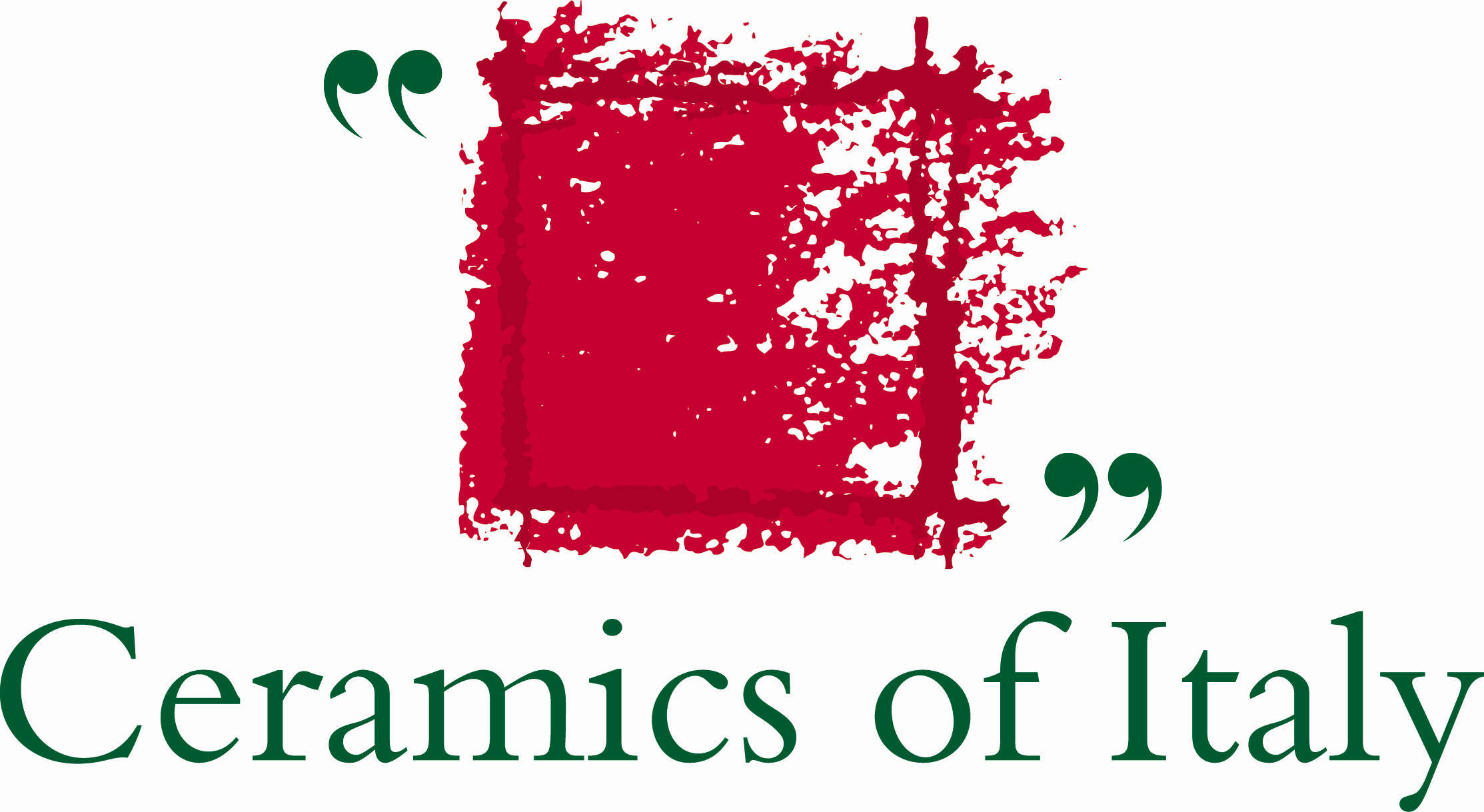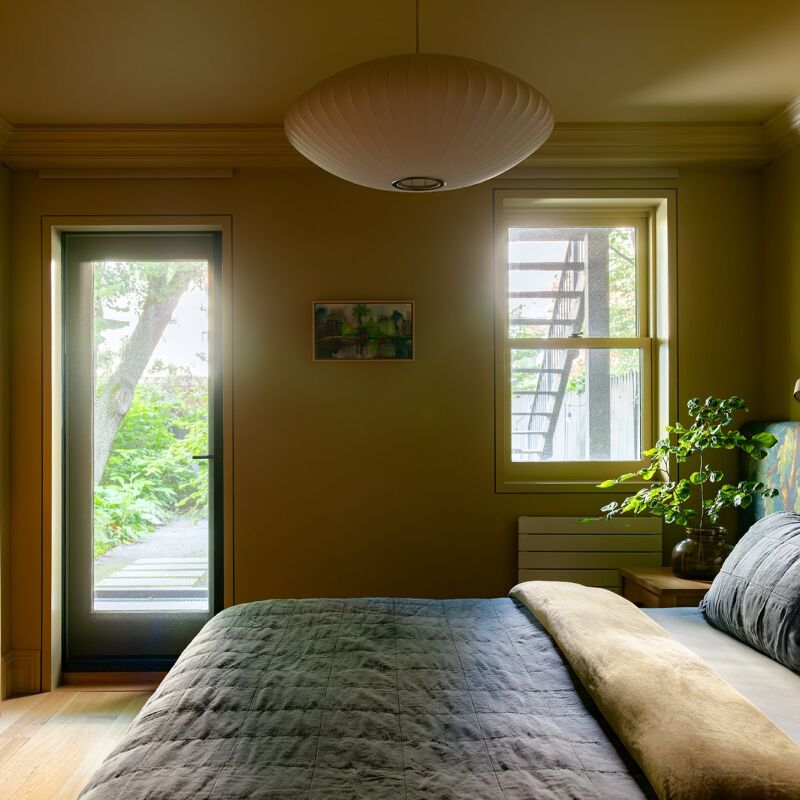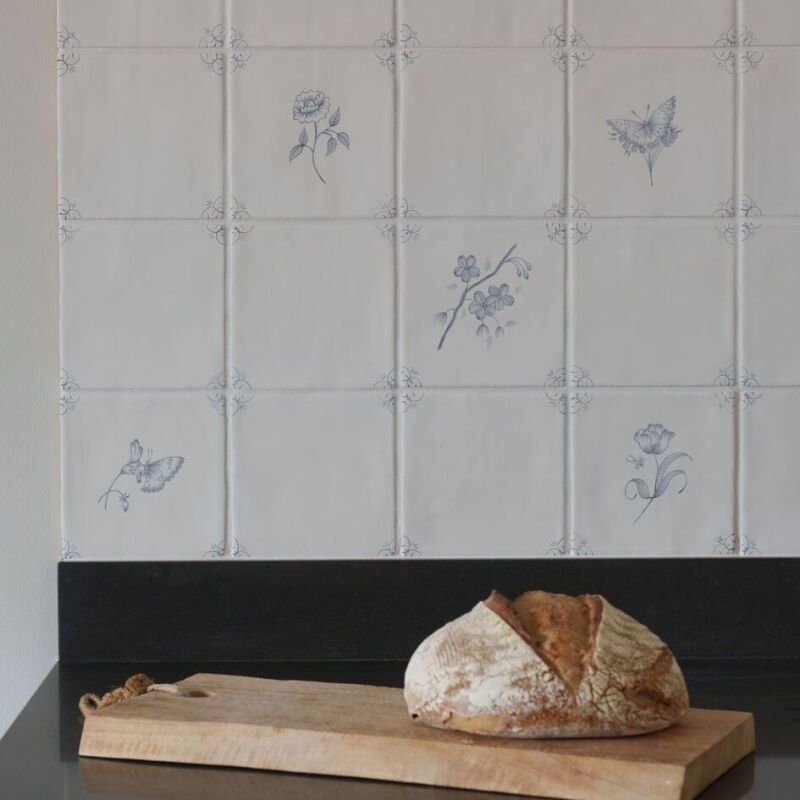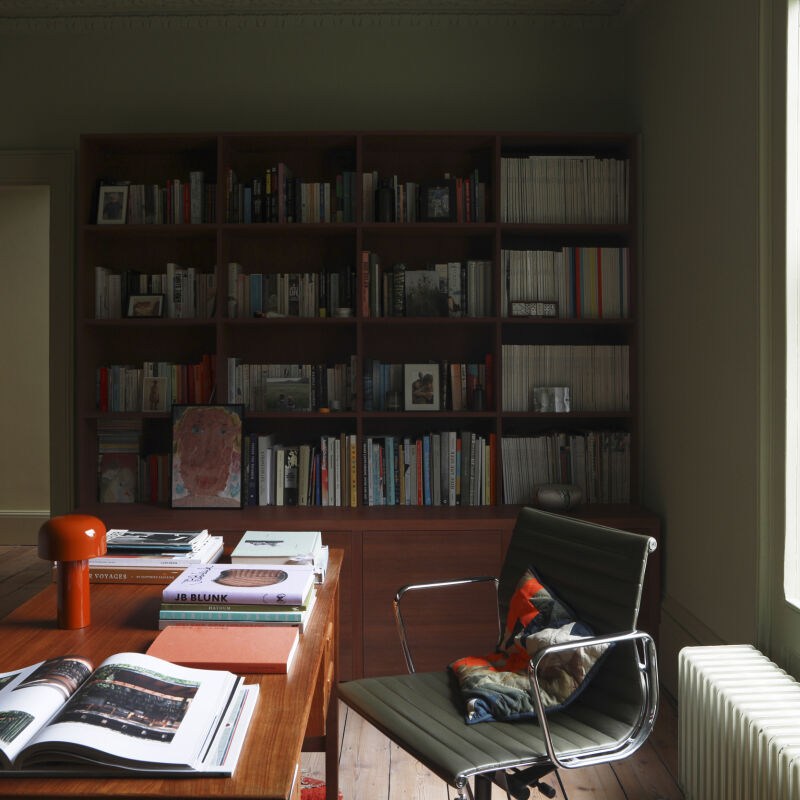Visit Italy, and you’ll find yourself admiring cathedrals and cafés alike showcasing decorative tiled floors, or tiled walls beautiful enough to act as art installations. Here in the US, however, we tend to restrict our use of tile to our most hardworking rooms—kitchens and baths—where we rely on their utility. But why shouldn’t we install ceramic tile all over our homes? The same characteristics that make tile an easy choice for backsplashes and tub surrounds lend themselves just as well to floors and walls of any room. Ceramic tile is durable, resistant to aging and abrasions, doesn’t need to be polished, and can even withstand extreme sunlight and frost. (Can your hardwood floors say that?) Plus, its long lifespan equals a lower environmental impact than other surface materials. If the utilitarian look we associate with tile is what’s been holding us back, it’s time to let go of that notion; new technologies mean that tile glazes, textures, and applications are more innovative than ever. To get a closer look at what’s been happening in the world of ceramic tile, we turned to the Ceramics of Italy, the trade association representing makers of Italian ceramic tile and sanitaryware, for the top tile trends the industry is tracking this year.
Here’s what they had to say:
Neu Surfaces

This year, it wasn’t just the patterns and sizes that impressed with their seemingly endless variety and sense of inventiveness. Tile producers have completely upped the ante in terms of surface design, which can be seen in dozens of awe-inspiring, new finishes, and textures designed for aesthetics as well as functionality. Two collections that artfully demonstrate this trend as well as ceramic tiles’ chameleon capabilities include Ceramica Sant’Agostino Lakewood that conjures oiled wood planks with a hand planed surface and Vallelunga Cava whose marble design and satin finish looks like an ancient European church floor.
Systems

For years, Italian tile manufacturers have been expanding the definition of a product, offering specifiers a whole suite of surfacing tools around a single idea or design. At first, it was a range of colors, finishes, and sizes as well as complementing decors and trims. Now, with continued investment in production equipment, many companies are expanding their range of thicknesses (and thus applications) with tiles ranging from 3 to 30mm, including a new 12mm thick porcelain tile specifically designed for kitchen countertops, bathroom vanities, tables, and outdoor kitchens.
Tile Play

From three-dimensional tiles that look like giant Lego bricks (Marca Corona Bold) to popular cartoons illustrated on ceramic (Del Conca Felix the Cat), when projects call for playfulness, Italian tile answers in full. Companies are continuously experimenting with colors, sizes, and patterns to create one-of-a-kind surface materials for architects and designers. Some manufacturers even offer tailor-made solutions, like Ornamenta’s ability to print large porcelain slabs in any Pantone color.
Lunar Marble

Moving beyond common varieties of stone like Carrara, Statuario, and Travertine, Italian tile producers are scouting quarries throughout the world to find obscure marble full of color and character or digitally manipulating the look of natural stone to create something completely new. For Sicis’ ever-evolving Vetrite collection, the magic of 13 gemstones are captured and amplified in between giant sheets of glass to create lunar-like landscapes for the Gem Glass line. Meanwhile, Refin Stardust combines the nebulous veining of alabaster with elegant metallic surface effects to create a line of porcelain tiles inspired by the nighttime sky.
The Blues

Whether soft or electric, blue is one of the most popular hues in tile design this year, offering revitalizing color to a variety of interiors. Some, like Cedit’s Rilievi sculptural ceramic wallcoverings, are the kind of pigmented blue associated with contemporary artists Yves Klein and Frida Kahlo. Others, like Refin Creos and Provenza Vulcanika, conjure the feeling of vacation and the teal waters of the Mediterranean Sea.
Big Patterns

Italians are known for their rich artistic heritage, which is now rendered on big porcelain slabs with minimal grout lines to create the alluring effect of wallpaper with the technical benefits of ceramic. In fact, some companies are even marketing their products as ceramic wallpaper, offering an expansive catalog of patterns digitally printed on tiles up to 5.25 by 10 feet. One example is ABK, who introduced Dark Edition as a capsule collection inspired by the Gothic side of nature for its ever-expanding Wide & Style line. Another company is Fuoriformato, which offers an explosion of color and pattern on large ceramic surfaces that can also be used as furnishing elements.
Tradition

From ancient forms and 18th century patterns, to tiles inspired by charming places seemingly stuck in time, Italian tile manufacturers are finding creative ways to make the old feel new again. Mixed and matched patterns, like those of 14oraitaliana’s Folk and Ceramica Sant’Agostino’s Vita collections, evoke the imagery and vibrant colors of Italy’s most famous and beloved territories. Fioranese’s Liquida slabs resemble 1950s-style wallpaper, while the earthy tones and textured surfaces of Provenza’s Terraquea collection recall traditional terracotta ware. Designed with nostalgic sentiments, each of these collections combine the aesthetic and cultural qualities of the past with the technological innovations of today.
For more home inspiration from Ceramics of Italy, be sure to follow them on Instagram and Pinterest.




